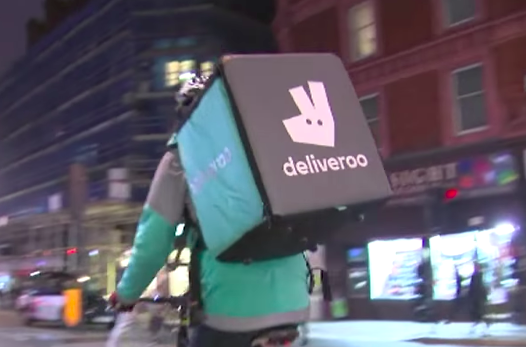‘It is now more important than ever to address a surprisingly difficult question: who will be entitled to these employment rights’
Luke Raikes is the Deputy General Secretary of the Fabian Society
The employment rights bill is central to this government’s purpose. It has been described as the ‘biggest improvement in workers’ rights in a generation’. That means it is now more important than ever to address a surprisingly difficult question: who will be entitled to these employment rights – that is, what makes someone an employee?
A person’s employment status is what guarantees them employment rights in the first place. In simple terms, employees have them; self-employed people do not. An employee workforce rightly comes with responsibilities and costs – employers must pay national insurance, and their employees have employment rights, like protection from unfair dismissal. In return, employers may exercise greater control over how they work, for example.
A business may want to undercut their competition, by avoiding these costs while still promising an equivalent level of service to the customer. That leads them to contract a self-employed work force, while trying to manage them as if they are employees. This is what we call ‘bogus self-employment’. A lot of people in this situation are low paid and have few alternatives.
Gig economy businesses have made a lucrative home in this legal grey area between statuses – although there have been issues for decades, from construction to car washing. These days, in any major city, we see a fleet of delivery riders plastered with the familiar logos and names of the platforms that arrange for the delivery. But those platforms don’t treat them like employees – they are, apparently, self-employed.
There is now a risk that a rise in employer national insurance, alongside more employment rights, is a greater incentive for businesses to move to models that allow them to circumvent the cost of employment.
This makes it even more important to progress with the government’s plan to reform employment status, which sits outside of the current bill. The government has said it intends to “consult on moving towards a single status of worker” to address some of these challenges. Uniquely, the UK has three employment statuses. Most will be aware of two main ones – employees, and the self-employed. But there is also an intermediate status, known by the obscure legal term “limb (b)” worker.
This intermediate status was created to provide some protection to self-employed people who have a closer relationship with the business engaging them but aren’t quite employees. Recognising this, they are entitled to a minimum wage and annual leave. Uber drivers were moved into this status following a supreme court judgment in 2021. Last year, Bolt drivers received a similar judgment. The government’s plan is to essentially make all intermediate limb (b) workers full employees to help clarify the situation.
But two-statuses wouldn’t necessary lead to clearer or better outcomes for workers. We don’t even know how big this intermediate group is, let alone the kind of relationship they want with the business they work for. We also don’t know if businesses will react in a way that’s beneficial to those workers. In other countries, businesses have responded to similar measures by bringing in a third party or agency to employ people directly or have switched to a fully self-employed business model.
We therefore have a problem that is both urgent and complicated. While policy makers try to grapple with the nature of the problem, large numbers of people are being denied vital employment rights.
One short-term measure would be to task the government’s new Fair Work Agency to prevent businesses playing games with the current laws – in doing so, establishing precedents that would help clarify the legal situation. They could consider enhancements to the current limb (b) workers’ rights, while they await legislation that may make them employees. And crucially, they could explore how to bring more self-employed people into this intermediate status, so they at least have some employment rights. At the Fabian Society, we have made some suggestions about how this could be done.
The modern labour market is a complicated place – it leaves many people exploited. The government’s employment rights bill will provide security to many of these. But next they will have to tackle some even more challenging areas – including who is entitled to the new protections being created. If they fail to do so, some of the most vulnerable people in the labour market will be left out in the cold.
Left Foot Forward doesn’t have the backing of big business or billionaires. We rely on the kind and generous support of ordinary people like you.
You can support hard-hitting journalism that holds the right to account, provides a forum for debate among progressives, and covers the stories the rest of the media ignore. Donate today.




